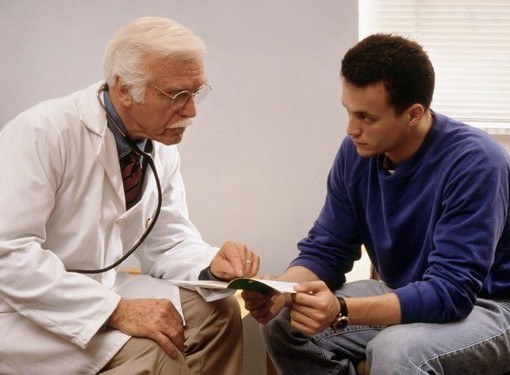The consequences of prostatectomy
Radical prostatectomy is a surgical removal of the prostate gland and seminal vesicles for prostate cancer, advanced form of prostate adenoma. Approximately 50% of men undergoing surgery, there is impotence or problems with sexual function decrease. If during the operation the surgeon managed to save the nerve bundles in men aged under 60 years more likely to recover erections than older men. Erection in the future is possible, if the stored at least one nerve bundle. If both are damaged beam, it is unlikely to recover.
Regardless, will I lose the ability to have an erection after surgery or it will be restored after treatment, orgasm is without ejaculation, so without medical help male will not be able to conceive. In some cases after removal of the prostate may develop other complications: bleeding, thromboembolism branches of the pulmonary artery, thrombosis of the veins of the lower extremities, urinary incontinence.
Urinary incontinence can cause rashes on the glans penis (balanoposthitis). In this case, you need to use an antifungal ointment.
The postoperative period prostatectomy
After surgery removal of the prostate the patient usually spends in the hospital for a few days and then recovering at home for three to five weeks. To urinary tract have recovered two or three weeks will have to use a catheter. It will help to avoid stagnation of urine and infection. While wearing the catheter, it is important to drink plenty of fluids. This will reduce the risk of blockage of the drainage tube and allow the urine to flow freely.
After removing the catheter it is necessary to use oilcloth and absorbent pads, as it may drip urine. To reduce recovery time of muscles responsible for continence, to do special exercises to strengthen them. To eliminate severe forms of incontinence, medication is required, medication must appoint a doctor. In some cases, resort to surgical intervention, for example, perform the implantation into the bladder artificial sphincter.
Within a few months after prostatectomy, it is impossible to conduct a rectal examination and take an enema.
During the recovery period you should try to avoid constipation. This requires to include in the diet more fruits and vegetables, from pork and beef should be eliminated. The patient needs to move more, you need to try often walk. Walking is a good prevention of blood clots in the lower extremities.
